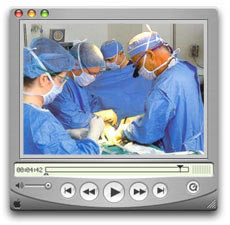Tubal Reversal Pregnancy Study Report 2009
Study Shows Tubal Reversal Surgery is the Best Treatment to Have More Children After a Tubal Ligation
Dr. Gary S. Berger today reported the results of the largest study ever performed of tubal reversal surgery, involving over 5000 women. The prospective study concludes that tubal ligation reversal is more successful than IVF for couples wanting more children after a tubal ligation.
“A simple one-hour outpatient tubal reversal procedure is more successful and costs less than half than the widely used and more complex IVF treatment,” said Dr. Berger, Medical Director of Chapel Hill Tubal Reversal Center.
“With increasing divorce and remarriage rates, many couples want to start second families, even after women’s tubes have been tied. Most people, including infertility specialists, think of tubal ligation as a permanent method of birth control,” continued Dr. Berger. Tubal ligation reversal repairs the fallopian tubes to allow pregnancies to occur naturally again.
The Tubal Reversal Pregnancy Report 2009 compared pregnancy statistics from Chapel Hill Tubal Reversal Center with the latest IVF statistics in the US. Pregnancy and birth rates were higher after tubal reversal than after IVF for every age group.
The study involved 5,046 women who had tubal reversal surgery performed by Dr. Berger between July 2000 and June 2008. This is the largest and most detailed long-term study ever performed regarding tubal reversal surgery results.
At the conclusion of the study interval, 66 percent of the tubal reversal patients had reported pregnancies. The pregnancy rate ranged from 80 percent for women under 30 to 31 percent for women 40 and older. The highest pregnancy rate (90 percent) was among women under age 30 following reversal of a clip method of sterilization.
Dr. Berger, one of the pioneers of tubal reversal surgery, is a reproductive surgeon who specializes in and limits his practice to outpatient tubal ligation reversal. Eliminating the need for hospitalization was one of the main factors in the lower cost of the surgical procedure.

